Prehistoric Cave Art And Asteroids: Interpreting Ancient Symbols
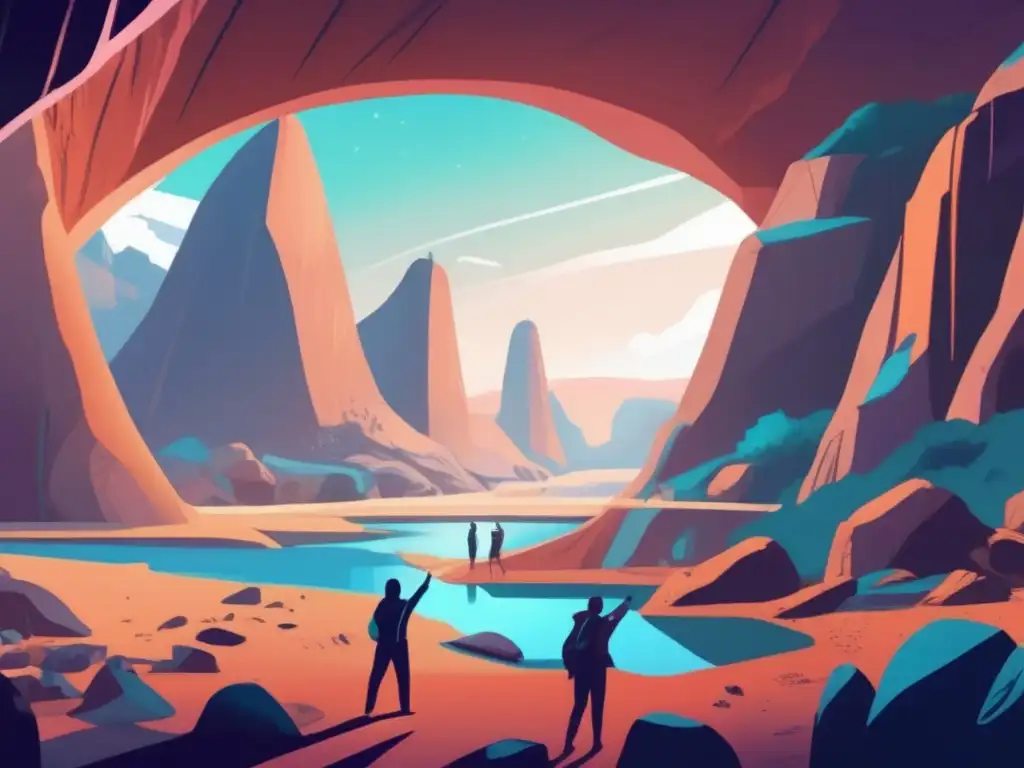
Introduction
Prehistoric cave art offers us fascinating glimpses into the beliefs and practices of ancient cultures. Depictions of animals, humans, and abstract symbols adorn the walls of caves, leaving us to puzzle out their meanings and significance. One interpretation that has gained traction in recent years is that some of these symbols may represent asteroids.
Scientists now know that asteroids have impacted our planet throughout its history, sometimes with devastating consequences. It’s likely that early humans also witnessed asteroid impacts and recorded them through art and oral tradition. In this article, we’ll explore how scientists are using modern technology to uncover the links between prehistoric cave art and asteroids, and what these discoveries can tell us about the history of our planet.
The Role of Asteroids in Prehistoric Mythology
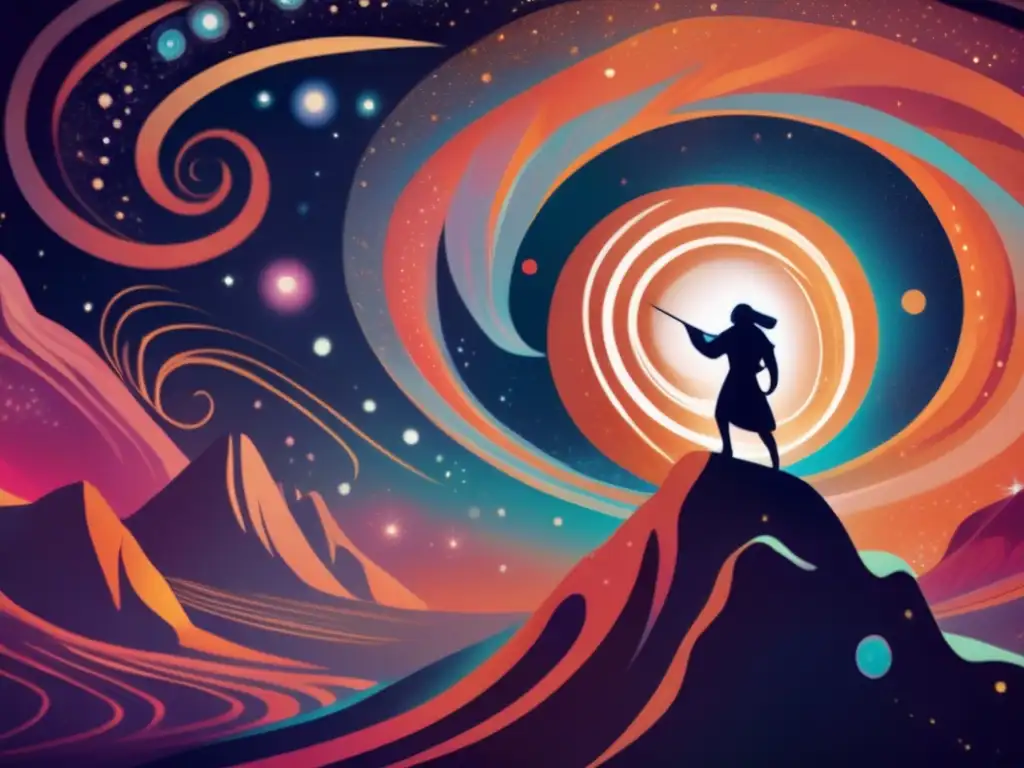
Ancient Myths and Legends
Asteroids have played a significant role in the mythology of many ancient cultures. The ancient Greeks, for example, believed that asteroids were the chariots of the gods, carrying them across the sky. Norse mythology also features celestial objects, with the god Odin riding Sleipnir, an eight-legged horse that was said to be born from the union between Loki and an asteroid.
Interpretations of Cave Art
Some researchers believe that many prehistoric symbols found in cave art represent astronomical events, including asteroid impacts. For example, a group of symbols known as the “Tunguska event symbols” appear in several cave paintings around the world. These symbols include circles with rays emanating from them, often interpreted as representing the explosion of an asteroid in the atmosphere.
Impact Craters and Prehistoric Art
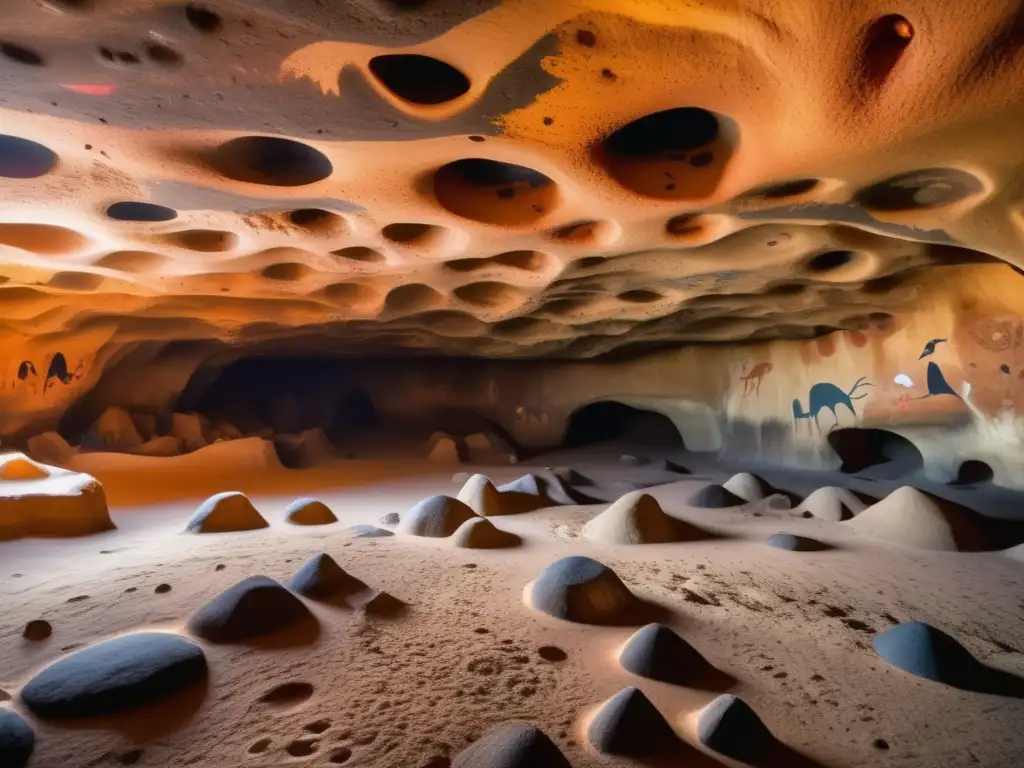
The Link Between Impact Craters and Cave Art
Scientists have discovered that many prehistoric cave art sites are located near impact craters, suggesting that early humans witnessed or were affected by asteroid impacts. In Arizona, for example, the Barringer Crater is surrounded by thousands of petroglyphs and rock carvings created by Native American tribes. Similarly, the Vredefort Dome in South Africa, the largest verified impact crater on Earth, is home to numerous rock paintings and engravings.
Using Technology to Investigate
In recent years, scientists have used high-resolution satellite imagery to map the impact craters of the world and investigate their links to prehistoric art. This technology has allowed researchers to identify new sites of interest and gain a better understanding of the relationship between ancient cultures and asteroids.
The Science of Interpretation
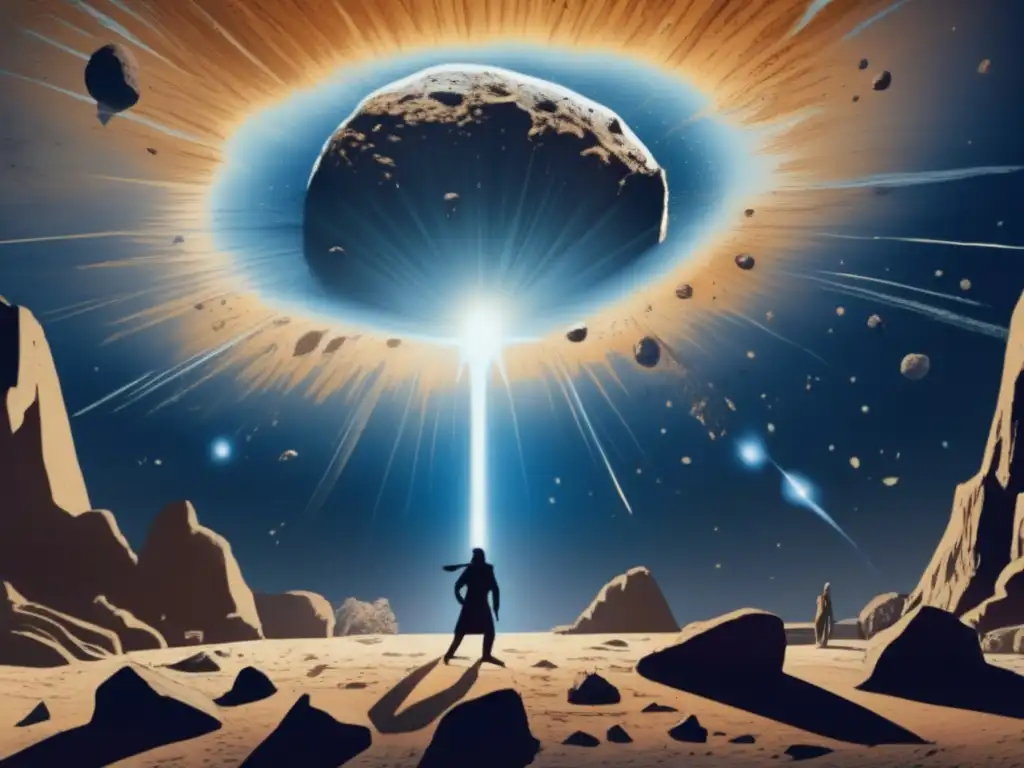
Limitations of Interpretation
While the links between prehistoric cave art and asteroids are fascinating, it’s important to remember that interpretation is an inherently subjective process. What one researcher sees as an asteroid impact symbol, another may interpret differently. Without concrete evidence such as impact debris or scientific analysis of the art materials, it can be difficult to definitively link prehistoric symbols to asteroids.
The Importance of Collaboration
Despite these limitations, there is value in exploring potential connections between prehistoric cave art and asteroids. By working collaboratively across disciplines, scientists can gain new insights into the history and culture of our planet while also advancing our knowledge of asteroids and their impact on our solar system.
Frequently Asked Questions
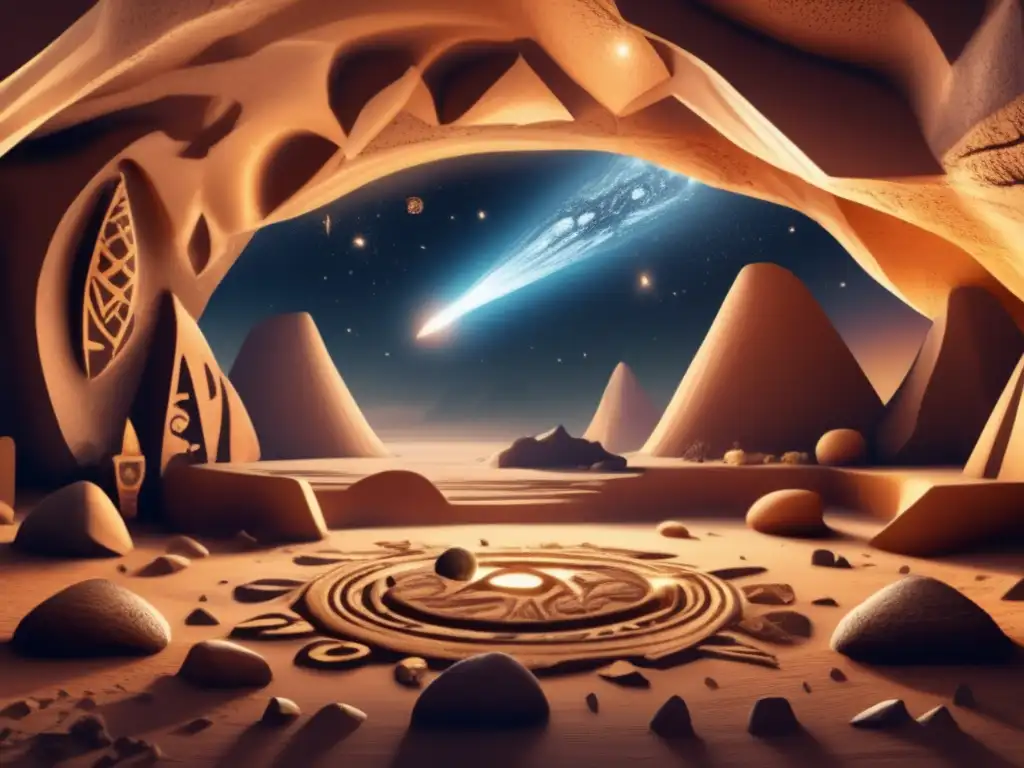
-
Did prehistoric humans have a scientific understanding of asteroids?
No, it’s unlikely that early humans had a scientific understanding of asteroids. However, they may have witnessed asteroid impacts and recorded them through art and oral traditions.
-
Are there any definitive examples of prehistoric symbols representing asteroids?
While there is no concrete evidence linking prehistoric symbols to asteroids, some researchers believe that certain symbols found in cave art may represent astronomical events such as asteroid impacts.
-
How are scientists using technology to investigate the links between prehistoric art and asteroids?
Modern technology such as high-resolution satellite imagery is being used to map the impact craters of the world and identify new sites of interest.
-
Why is collaboration important in exploring the links between prehistoric art and asteroids?
Collaboration across disciplines can lead to new insights into the history and culture of our planet while also advancing our knowledge of asteroids and their impact on our solar system.
-
What can studying prehistoric cave art tell us about the history of our planet?
Studying prehistoric cave art can give us insights into the beliefs and practices of ancient cultures, as well as the environmental factors that shaped their lives.
Conclusion
The links between prehistoric cave art and asteroids offer us a fascinating glimpse into the beliefs and experiences of early humans. While the interpretation of these symbols is subjective, the investigation of potential connections can lead to new insights into the history and culture of our planet. By working collaboratively across disciplines, scientists can continue to uncover the links between prehistoric art and asteroids, advancing our understanding of both.
If you found this article informative, please consider subscribing to Asteroid Realm or sharing it on social media. Your support helps us to continue bringing you valuable content about asteroids and their impact on our world.
Additional Resources
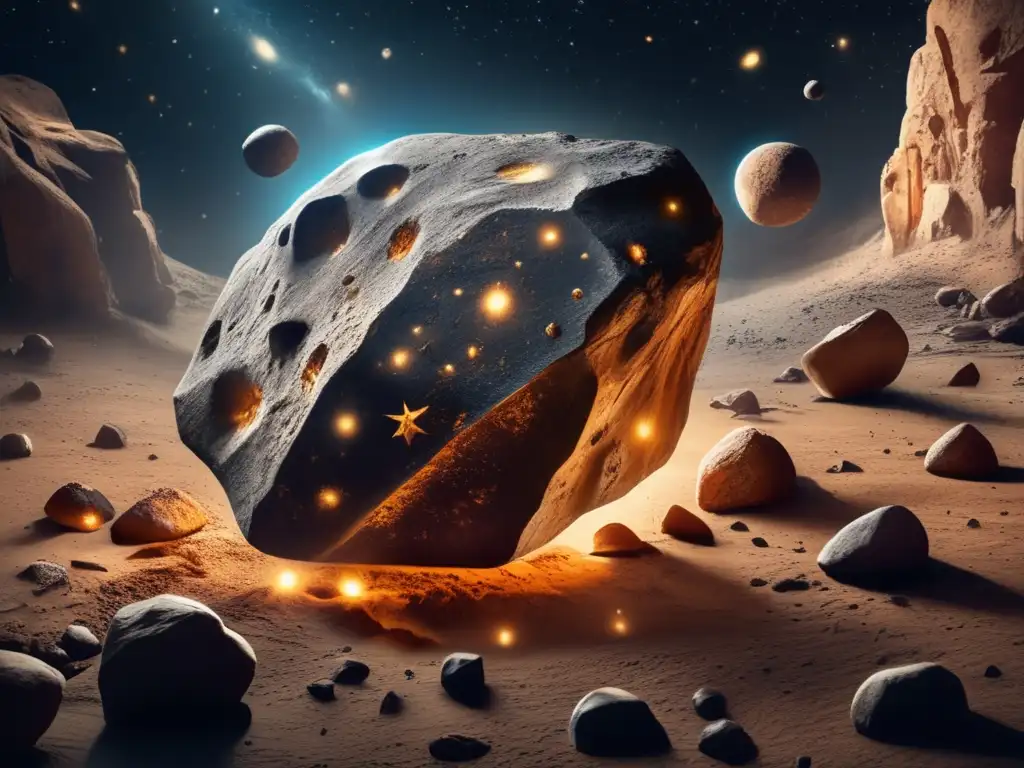
If you’re interested in learning more about the links between prehistoric cave art and asteroids, check out these additional resources:
- NPR: Researchers Find Asteroid Impact Site Off Scotland's Coast
- NASA: Clearing up the Tunguska Mystery
- Smithsonian Magazine: The Mystery of Painted Caves
 Asteroid Mythology In Ancient Architecture And Design
Asteroid Mythology In Ancient Architecture And Design Asteroid Myths In Modern Science Fiction: A Continuation Of Ancient Stories
Asteroid Myths In Modern Science Fiction: A Continuation Of Ancient Stories The Iconography Of Asteroids In Ancient Art
The Iconography Of Asteroids In Ancient ArtIf you want to discover more articles similar to Prehistoric Cave Art And Asteroids: Interpreting Ancient Symbols, you can visit the Asteroid Mythology category.
Leave a Reply

Articulos relacionados: